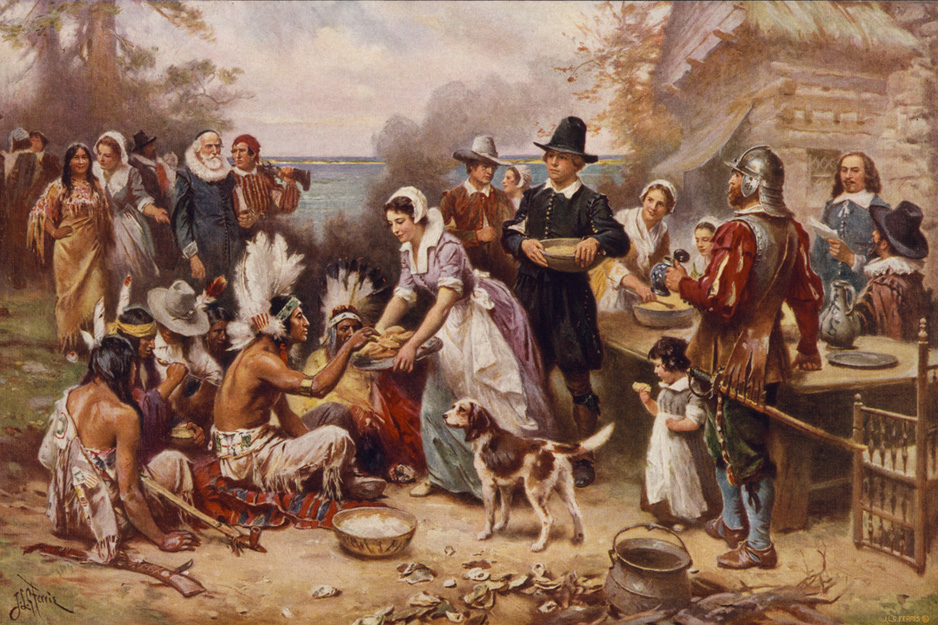
Thanksgiving is a wonderful time of the year when Americans take a break from their work-day activities and gather with friends and loved ones for food, fellowship, and football.
However, while Thanksgiving is celebrated by the majority of Americans, many are unaware of the strong Christian origins of this special holiday.
Thanksgiving was first celebrated in 1621 by the Plymouth settlers in Massachusetts as harvest feast thanking God for his care and provision.
These English Pilgrims left Plymouth, England on September 6, 1620 for the New World seeking religious and civil freedom. After two months at sea, they landed in what is now Massachusetts. After conducting a prayer service and signing the "Mayflower Compact" - the first document to introduce self-government to the New World - they prepared for the harsh New England winter.
Sadly, unprepared for the brutal and unforgiving environment they faced, half the settlers died before winter's end due to starvation and disease. However, by persevering in prayer and with the help of Native Americans, they planted crops and reaped a sufficient harvest to carry them through the second winter in the New World.
The grateful Pilgrims then declared a three-day feast, starting on December 13, 1621, to thank God for His favor and to celebrate with and thank their Indian friends.
One Pilgrim, Edward Winslow, recalled the Pilgrim's first Thanksgiving in these words:
Our harvest being gathered in, our Governor sent four men on Fouling [bird hunting] so that we might, after a special manner, rejoice together after we had gathered the first fruit of our labors. They four in one day killed as much foul as . . . served the company almost a week. . . . Many of the Indians [came] amongst us and . . . their greatest King, Massasoit, with some ninety men, whom for three days we entertained and feasted; and they went out and killed five deer, which they brought. . . . BY THE GOODNESS OF GOD WE ARE . . . FAR FROM WANT.
In October 1789, in the midst of the gruesome Revolutionary War, President George Washington issued the first presidential thanksgiving proclamation as a day for giving thanks to that "great and glorious Being who is the beneficent author of all the good that was, that is, or that will be. . . ."
That same year, the Protestant Episcopal Church, of which President Washington was a member, announced that the first Thursday in November would become its regular day for giving thanks, "unless another day be appointed by the civil authorities."
President Washington declared that Both Houses of Congress asked him "to recommend to the people of the United States a day of public thanksgiving and prayer, to be observed by acknowledging with grateful hearts the many and signal favors of Almighty God, especially by affording them an opportunity peaceably to establish a form of government for their safety and happiness. . . ."
Many years later, President Abraham Lincoln declared a national Day of Thanksgiving during the Civil War, in the immediate aftermath of the Battle of Gettysburg (July 1-3, 1863) and just days after visiting the sobering battlefield at Gettysburg where he had delivered the timeless Gettysburg address.
Thanksgiving is perhaps one of the most treasured holidays of America's past. Even in the most difficult of times in our nation's history, Americans taken a day to reflect on God's many blessings and thank Him for His care and beneficence.
The apostle Paul writes, "in everything give thanks for this is the will of God in Christ Jesus concerning you" (1 Thess. 5:18). As Christians celebrate Thanksgiving each year and enjoy time with loved ones, we hope they will continue to display the same kind of gratefulness to God for our many freedoms and blessings in the sincerity exemplified by our courageous forefathers.















